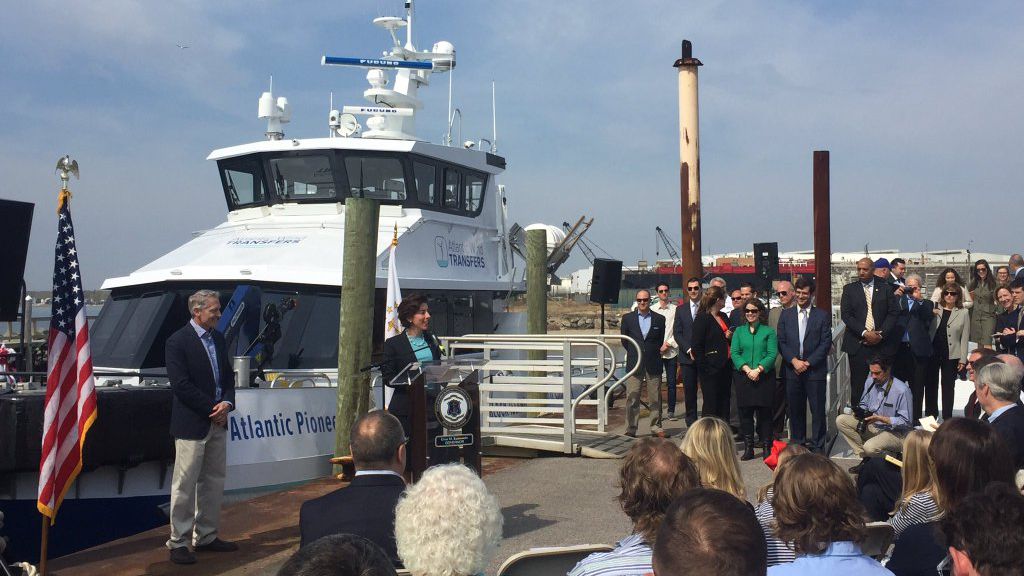First American Wind Farm Service Vessel Christened

On Friday, U.S. offshore wind farm developer Deepwater Wind and ferry operator Rhode Island Fast Ferry celebrated the christening of the first American wind farm service vessel, the Atlantic Pioneer.
The Pioneer, built in Rhode Island by Blount Boats and operatedby Rhode Island Fast Ferry's Atlantic Wind Transfers subsidiary, will carry service crews to and from the first U.S. offshore commercial wind development, the five-turbine Block Island Wind Farm.
The farm will generate 30MW to power homes and businesses on Block Island, and its electricity will also flow to the mainland via an underwater power cable.
Block Island Wind Farm spent years moving through regulatory approval processes; it was the first offshore wind farm project to attempt to win state and federal approvals, and its CEO, attorney Jeff Grybowski, says that it was the "guinea pig" for the regulatory process.
But last year it began installation, with piles driven into the seafloor supporting steel jackets for the towers. The turbines, once installed, will reach to 600 feet above the water. Its jackets and towers are designed to withstand a Category 3 hurricane – a much more stringent design requirement than for wind farms offshore Europe. Construction costs will total to $300 million.
The farm is unique to date in breaking through regulatory gridlock. Well-funded opponents along the Massachussetts shoreline – famously including the Kennedy family – have managed to fend off the $2.5 billion Cape Wind development for well over a decade.
An article forthcoming in Forbes’ May 10 magazine edition describes the project's financial terms as quite favorable for its developers – even objectionably so, from the perspective of Rhode Island's ratepayers. The state's utility will pay Deepwater Wind 24 cents per kwh for the farm's electricity, rising to 50 cents per kwh by the end of its 20-year contract – well above the national average. For the near term, it will be an improvement for Block Island’s ratepayers, who have been paying for electrical power from diesel generators for decades.
Deepwater Wind, which is majority owned by New York-based hedge fund D.E. Shaw, is also working on a proposal for a larger farm to the east, off of Montauk.
Bryan Martin, head of D.E. Shaw’s U.S. private equity division, told Forbes that his firm is optimistic for further developments. “There is a replacement cycle going on for power assets in North America, and in the constrained space of the Northeast, offshore wind can be cost-competitive."
